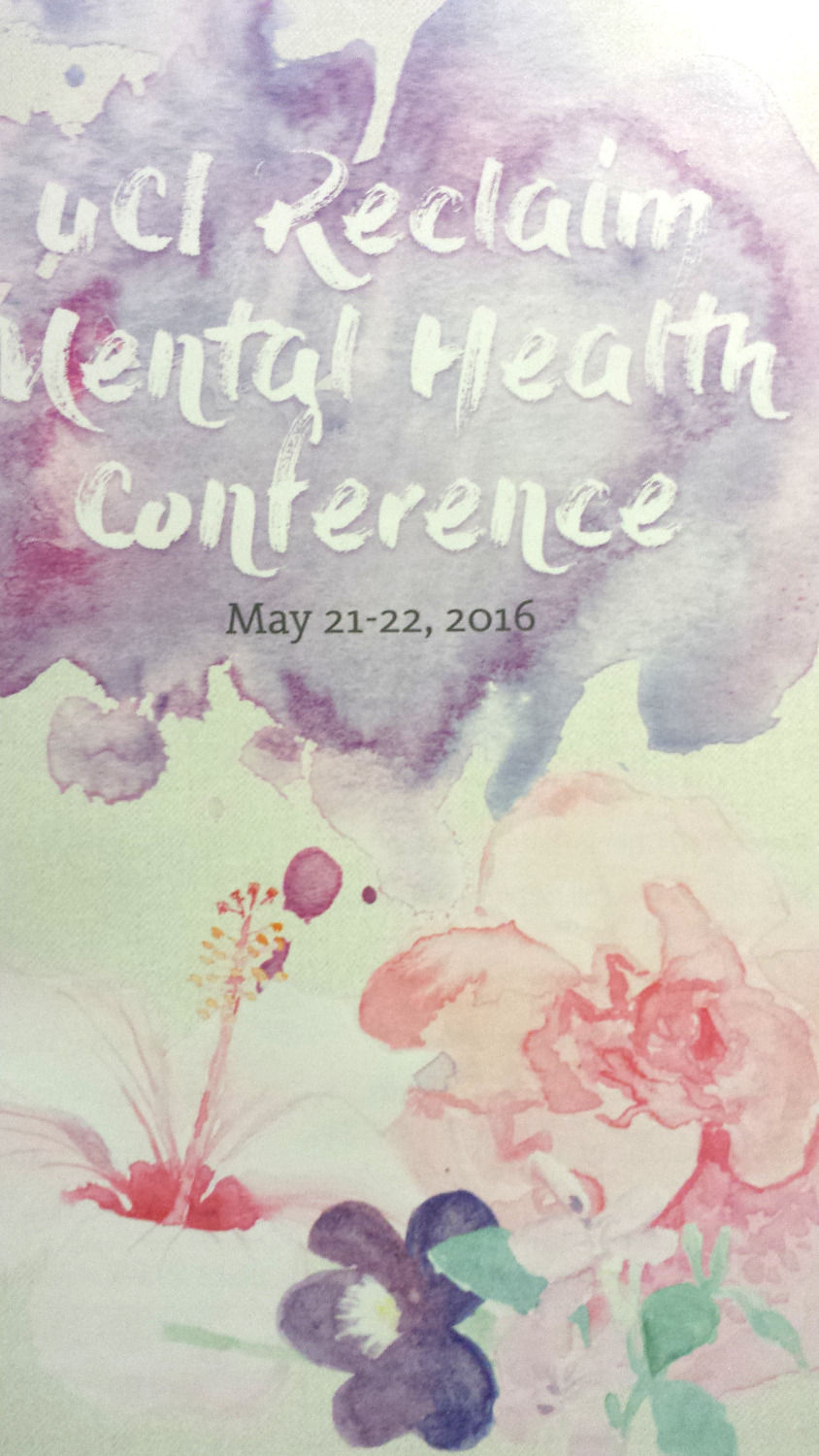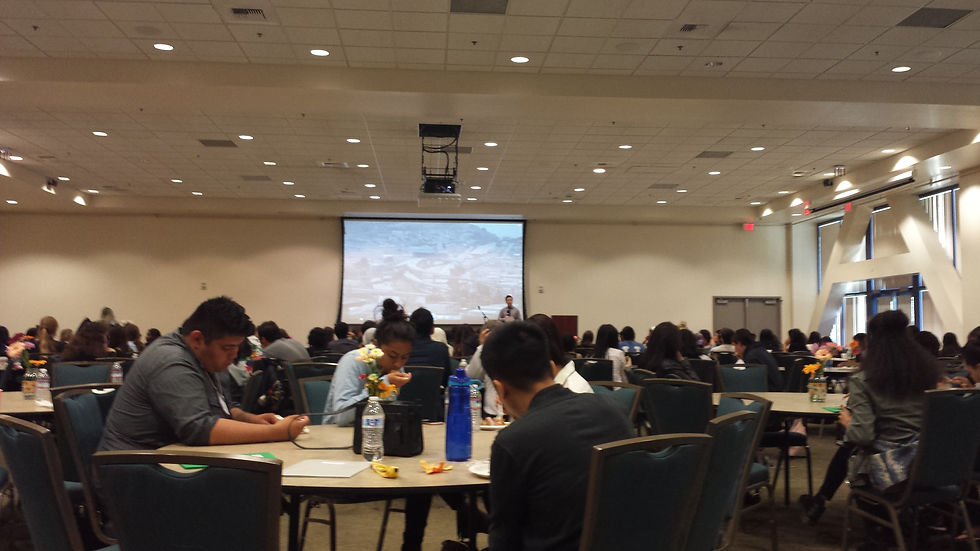Voices: On the Complexities of Mental Illness and Mental Health
- Elyse Joseph
- Jun 5, 2016
- 4 min read

Photo courtesy of Elyse Joseph
Over two hundred students and a handful of healthcare professionals and others gathered in the UC Irvine Student Center’s Pacific Ballroom CD for a screening of the documentary Voices directed by Hiroshi Hara and Gary Tsai as well as a discussion of the film with director Dr. Gary Tsai over lunch Sunday afternoon.
The screening was a part of an annual weekend conference spanning Saturday May 21 and Sunday May 22 called the UCI Reclaim Mental Health Conference which drew students, professionals, and others to discuss the problems with mental health care and the stigma surrounding mental illness’.
The documentary film, Voices, explores the lives of three individuals in California with severe mental illnesses solely in their own words and in the words of their loved ones. Sharon Do is a Vietnamese immigrant and mother diagnosed with schizophrenia and showing signs of paranoia and depression. When she moved to California, she began to hear accusatory voices which brought on her depression. She now lives in a mental health care facility where her family members visit her several times per week.
Thomas Marshall, also featured in the film, is a homeless man living in San Francisco. Though he is an active member of his community who seems happy and kind, he is isolated in many ways, including from his family, and has no access to mental health care. “It’s important to be kind because I suffer a lot, you know.”
Finally, Aaron Bassler’s story is told only through his family members, as he was shot and killed by police in the woods near Fort Braggs after shooting and killing two officers in the same location. According to his family, he had shown signs of paranoid schizophrenia, though he was never officially diagnosed; however, they were unable to provide him with care due to the failings of the current mental health care system and the difficulty of discussing mental illness because of the stigma that surrounds it. “People don’t want to deal with people who are mentally ill,” said one of Bassler’s relatives featured in the documentary.
Attendees of the event cited various reasons for their interest in the conference. Alyssa Kato said, “A while back, when I was first becoming a teenager, I was diagnosed with major depressive disorder.” Having experienced and overcome a severe episode of depression, she is a student panelist in the conference. Jessica Cheng, a graduate of UCI, said that she did not become interested in the subject of mental health until later in college, but, “The more I learn, the more I want to learn.”

Photo courtesy of Elyse Joseph
After the screening ended, Doctor Gary Tsai, M.D.--who currently works at the L.A. County Department of Public Health, Substance Abuse Prevention and Control, and whose mother is schizophrenic--stood at the podium and answered questions from the audience and discussed Voices as well as the field of mental health care.
Among the issues that were discussed was that of treating serious cases, particularly if the person does not want treatment, as in the case of Aaron Bassler. Tsai responded that this can be difficult because the mental health care system works largely on a voluntary basis.Because of a condition called anosognosia, some people with severe illnesses cannot comprehend that they are ill. Complicating the matter still is the fact that such cases account for 50 percent of those suffering from schizophrenia and 40 percent of people with bipolar disorder but only about 2 percent of all people with mental health conditions.
“I think that one of the challenges with talking about mental health conditions is that it’s so varied and it’s so complicated,” said Tsai during the Q and A. One audience member asked why the documentary did not feature cases in which the person could cope or exist within society with their mental illness. Tsai, pointing out that this is a common criticism of the film, said that there are already stories being told about people who recover from mental illnesses. “We did want to feature stories with the other side of the spectrum. Yes, some people get better. Some people are in the middle. But some people don’t get better.”
Many people are unable to access care for their mental illness for varying reasons, like Thomas Marshall and Aaron Bassler in the film. Tsai also said that it was not a conscious decision; the filmmakers used the stories that came to them, rather than manipulating their results.
The session ended with a viewer asking for advice for people who are interested in working in the mental health field. “We need more of you, so welcome,” said Tsai. However, on a more serious note, he concluded by saying that in his own experience it was beneficial to him to have have grown up with his mother who is schizophrenic and advising those concerned to consider where the patient is coming from, not just what is in their textbooks.




Comentarios